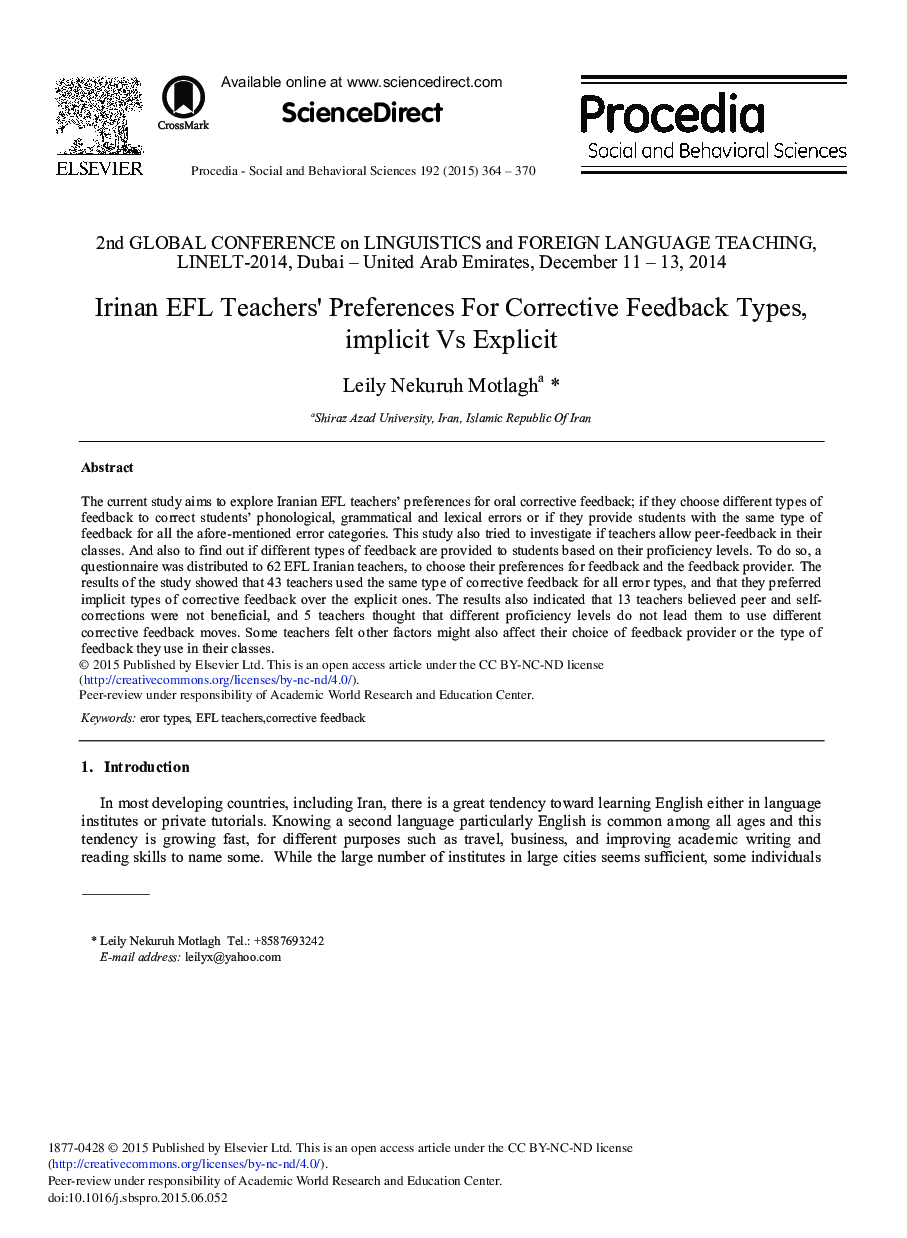| Article ID | Journal | Published Year | Pages | File Type |
|---|---|---|---|---|
| 1109271 | Procedia - Social and Behavioral Sciences | 2015 | 7 Pages |
The current study aims to explore Iranian EFL teachers’ preferences for oral corrective feedback; if they choose different types of feedback to correct students’ phonological, grammatical and lexical errors or if they provide students with the same type of feedback for all the afore-mentioned error categories. This study also tried to investigate if teachers allow peer-feedback in their classes. And also to find out if different types of feedback are provided to students based on their proficiency levels. To do so, a questionnaire was distributed to 62 EFL Iranian teachers, to choose their preferences for feedback and the feedback provider. The results of the study showed that 43 teachers used the same type of corrective feedback for all error types, and that they preferred implicit types of corrective feedback over the explicit ones. The results also indicated that 13 teachers believed peer and self-corrections were not beneficial, and 5 teachers thought that different proficiency levels do not lead them to use different corrective feedback moves. Some teachers felt other factors might also affect their choice of feedback provider or the type of feedback they use in their classes.
